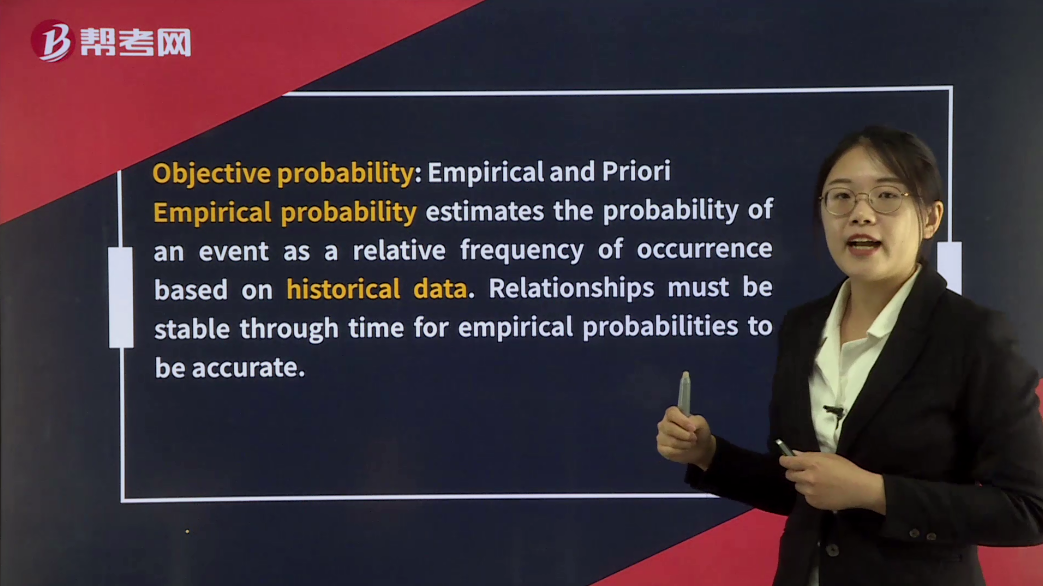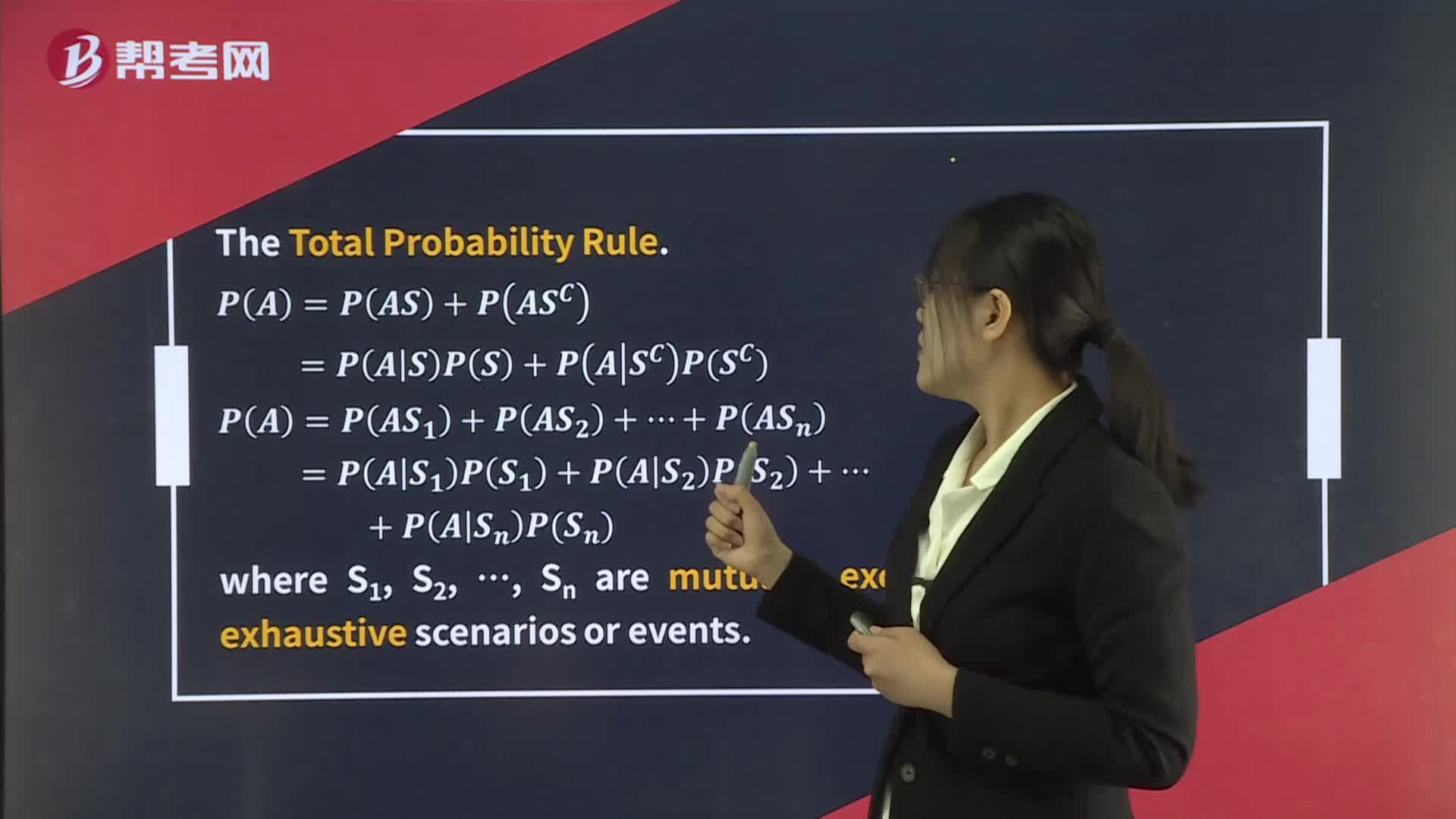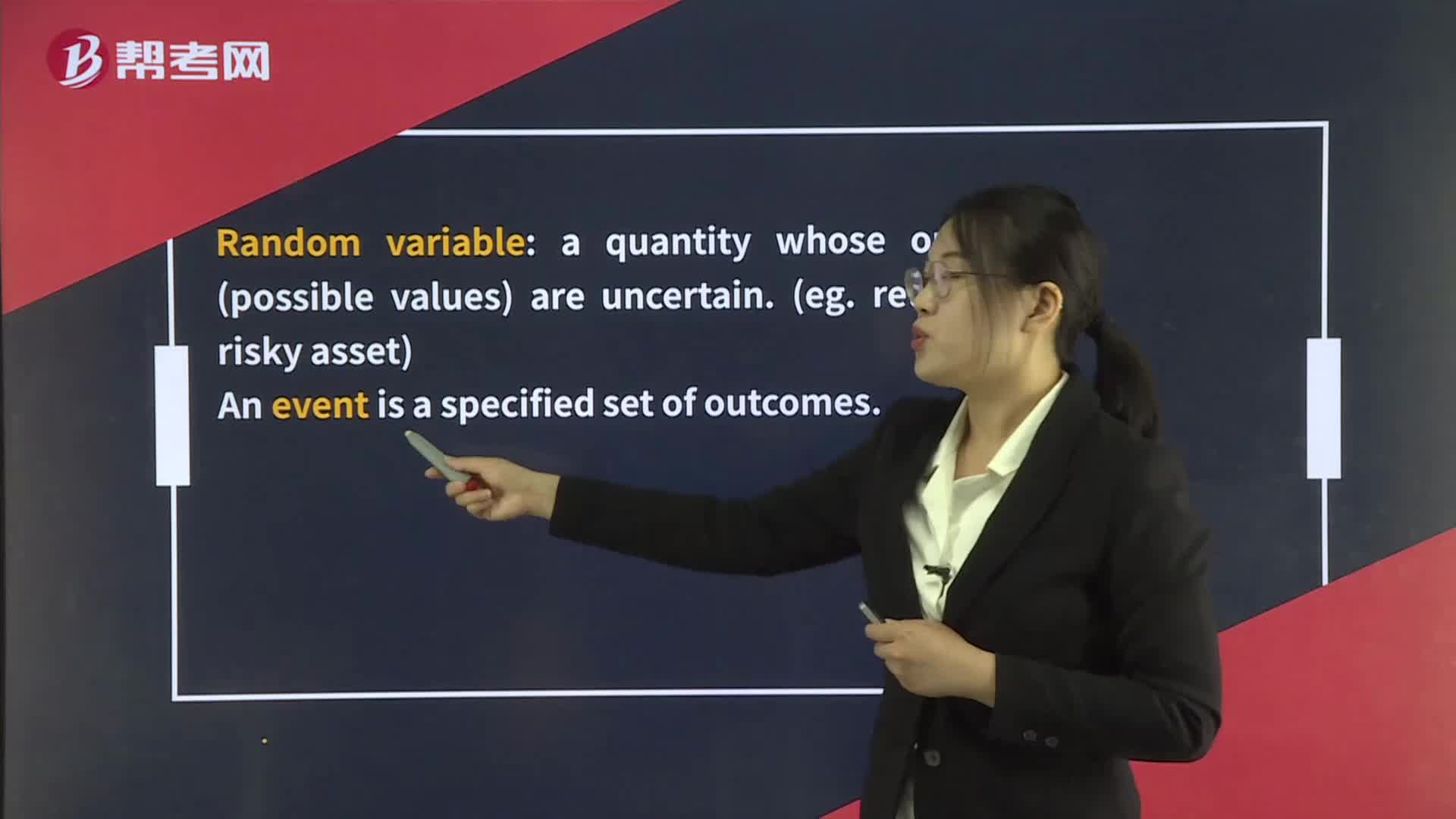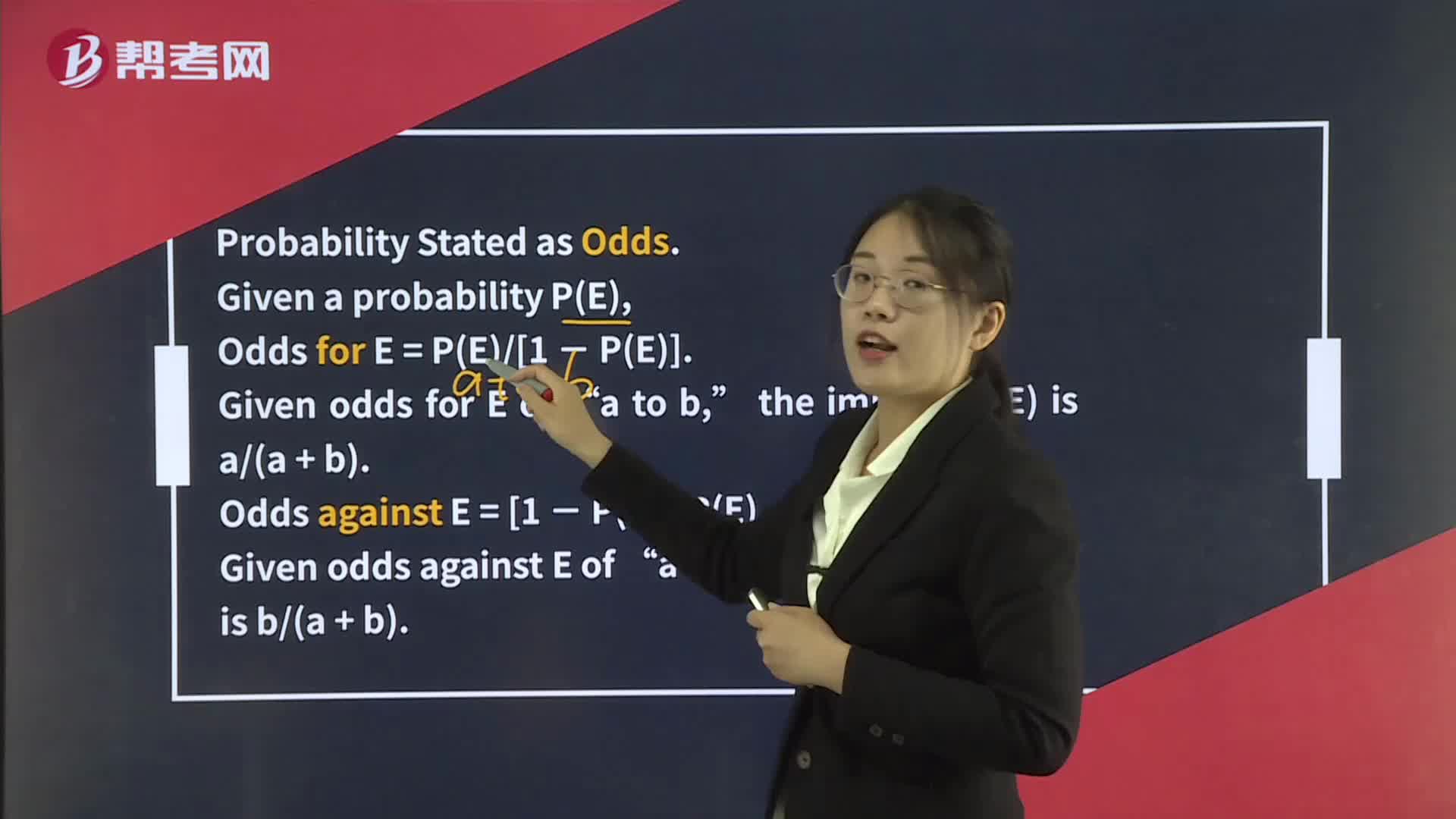
下载亿题库APP
联系电话:400-660-1360

下载亿题库APP
联系电话:400-660-1360

请谨慎保管和记忆你的密码,以免泄露和丢失

请谨慎保管和记忆你的密码,以免泄露和丢失
Probability
Random variable: a quantity whose outcomes (possible values) are uncertain. (eg. return on a risky asset)
An event is a specified set of outcomes.
Probability:
1 The probability of any event E is a number between 0 and 1: 0 ≤ P(E) ≤ 1.
2 The sum of the probabilities of any set of mutually exclusive and exhaustive events equals 1.
Mutually exclusive means that only one event can occur at a time; exhaustive means that the events cover all possible outcomes.
Objective probability: Empirical and Priori
Empirical probability estimates the probability of an event as a relative frequency of occurrence based on historical data. Relationships must be stable through time for empirical probabilities to be accurate.

Priori probability: deduce probabilities by reasoning about the problem. based on logical analysis rather than on observation or personal judgment.
Subjective probability draws on personal or subjective judgment.
 208
208The Total Probability Rule:not-S,the two-quarter period in total.rulejoint probability of both A and B occurring is PAB = PAPB.
 168
168Probability:Random:variable:a quantity whose outcomes possible values;An event is a specified set of outcomes.:timeObjectiveprobability draws on personal or subjective judgment.
 214
214Probability Stated as Odds:Odds against E = [1 − PE]PE,if:successful;calculate the bet’s anticipated profit as follows:Win,Lossprobability of 0.167 for beating sales is odds of 1 to 5.

微信扫码关注公众号
获取更多考试热门资料